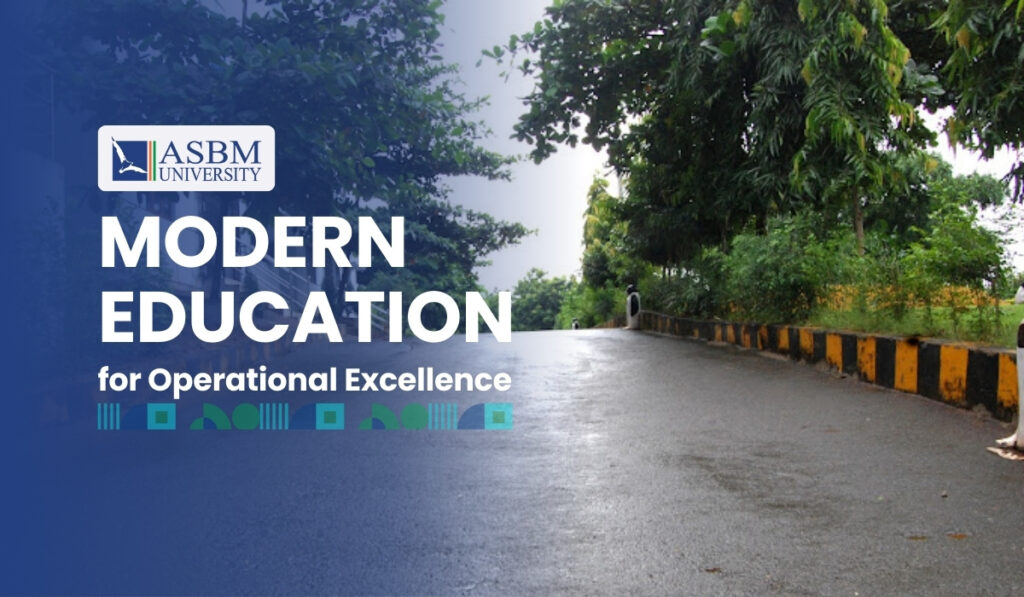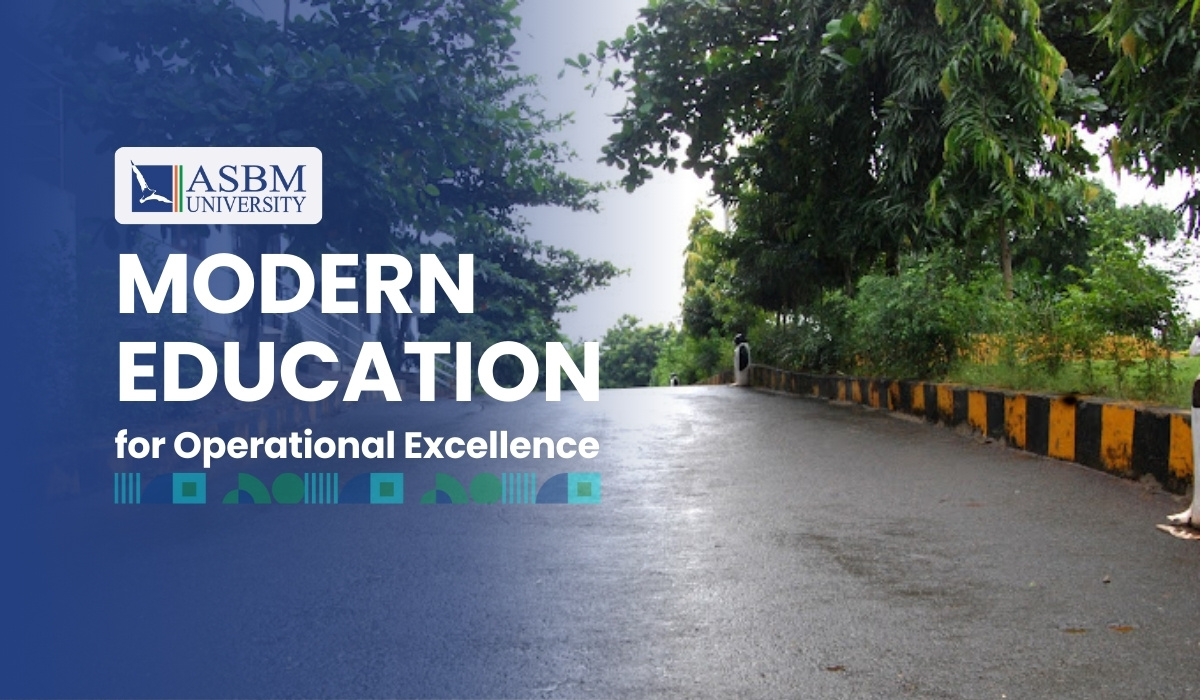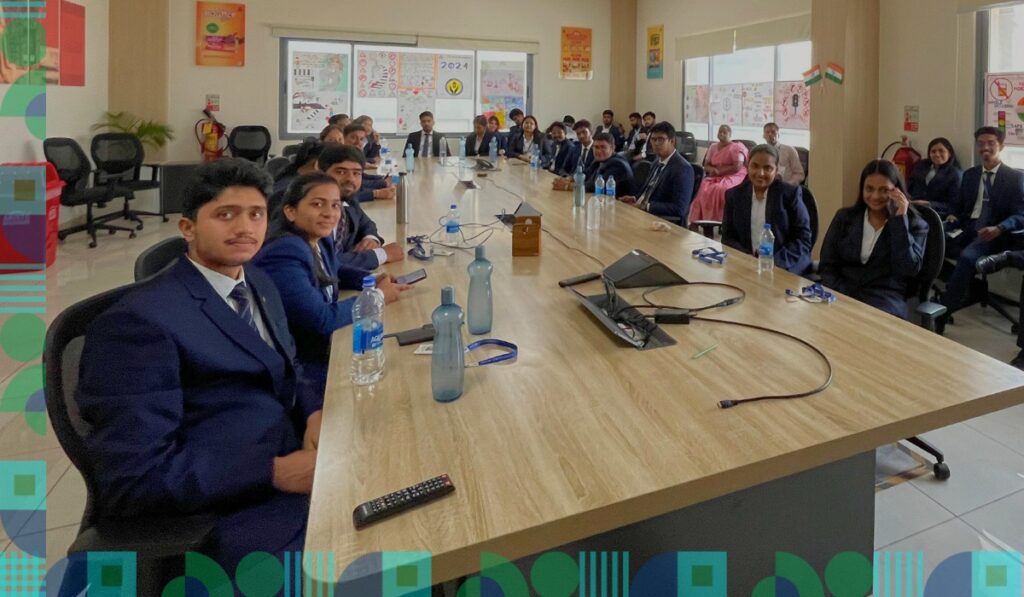How ASBM University’s Modern Education Equips Future Leaders for Operational Excellence

Today, we stand at a pivotal moment in history where businesses are evolving at an unprecedented pace. Technology, automation, and data-driven decision-making are transforming industries globally. Yet, at the heart of every successful enterprise remains a fundamental element: Operations and Processes.
Whether it’s a multinational corporation or a thriving startup, efficiency in workflows, supply chain management, and quality control determines success. The question before us today is: How do we prepare the next generation to master this art? The answer lies in modern education—not as an academic exercise but as an immersive experience that simulates real business challenges.
The Importance of Operations & Processes
Operations and processes are the lifeblood of business. Let’s take a step back and look at what we mean by this.
- Efficient Workflows – Businesses succeed when internal systems run seamlessly. Delays, bottlenecks, and inefficiencies can cost companies millions.
- Supply Chain Management – With globalization, managing raw materials, production, and distribution efficiently is a competitive advantage.
- Quality Control – In a world where customer expectations are higher than ever, maintaining high standards determines brand loyalty.
It has been noticed, businesses that prioritize operational efficiency outperform competitors by 30% in profitability. The importance of mastering these elements is non-negotiable.
The future of business is being written today. Here are some insights shaping operations and process management:
- Automation & AI: By 2030, over 50% of business operations will be automated, improving efficiency and reducing errors.
- Sustainable Supply Chains: ESG (Environmental, Social, and Governance) standards are driving a shift towards ethical sourcing and green logistics.
- Data-Driven Decision-Making: Companies using predictive analytics see a 15-20% reduction in operational costs.
- Industry 4.0: Technologies like IoT (Internet of Things) and Blockchain will redefine how businesses operate, ensuring transparency and efficiency.
These are not just trends; they are the new business realities. Companies are aggressively investing in these areas, and the need for skilled professionals has never been greater.
India’s Leading Examples of Operational Excellence
Let’s look at some of India’s most inspiring business stories that showcase the power of operations:
- Reliance Industries: One of India’s largest conglomerates, Reliance Industries has revolutionized multiple sectors, from oil refining and petrochemicals to retail and telecom. The company’s ability to implement vertical integration ensures that its entire supply chain—from raw material sourcing to end-user delivery—is under its control. This reduces dependency on external suppliers, cuts down costs, and improves operational efficiency across industries.
- Tata Group: A legacy of operational brilliance, Tata Motors, a subsidiary of the Tata Group, has mastered global supply chain management. The company maintains an extensive network of suppliers and manufacturing units worldwide, ensuring seamless production and delivery while adhering to global quality standards. Tata’s ability to balance cost efficiency with premium quality has solidified its position in both domestic and international markets.
- Zomato & Swiggy: These food delivery giants have disrupted the food service industry by optimizing last-mile logistics. Using AI-powered delivery algorithms, they minimize delivery times and optimize routes, ensuring customer satisfaction while reducing operational costs. Their dynamic pricing models and real-time tracking mechanisms have set new benchmarks in operational efficiency.
- Flipkart: India’s e-commerce powerhouse, Flipkart, has developed one of the most advanced warehousing and logistics networks in the country. By leveraging AI and machine learning, Flipkart efficiently manages inventory distribution, streamlines order fulfillment, and enhances customer experience. Its robust supply chain infrastructure ensures quick delivery times, giving it a competitive edge over global giants like Amazon.
Each of these businesses is built on strong operational foundations, and they are constantly evolving with technology-driven innovations.
By 2030, industries like renewable energy, HealthTech, e-commerce, AI, and space technology will experience exponential growth. The push for sustainability will drive advancements in solar, wind, and hydro energy, alongside breakthroughs in EV batteries and carbon capture. AI-powered healthcare and biotechnology will transform patient care and drug development, while e-commerce will demand smarter logistics, drone deliveries, and automated fulfillment centers. In this evolving landscape, operational excellence will be the key differentiator—companies that streamline processes, optimize supply chains, and leverage automation will lead the race.
AI and robotics will revolutionize manufacturing and customer service, making businesses more agile and cost-efficient. Meanwhile, space technology will open new frontiers with advancements in satellite communication, asteroid mining, and space tourism, with India emerging as a key player. However, success in these industries will depend on how well businesses refine their operations—those that embrace efficiency, scalability, and process innovation will dominate. As the future unfolds, educational institutions must prepare students to not only innovate but also master the art of operational excellence to stay ahead in this competitive landscape.
Education as the Key to Preparing Future Business Leaders
The modern education system must evolve beyond traditional classrooms. Students should not just learn about operations—they should experience it first-hand.
Here’s how universities are leading the transformation:
- Industry-Relevant Curriculum – Business schools are integrating live projects, simulations, and case studies to provide real-world exposure.
- Technology-Driven Learning – Courses now include ERP (Enterprise Resource Planning) systems, AI-driven analytics, and digital supply chain models.
- Internships & Corporate Collaboration – Universities are partnering with Fortune 500 companies to offer hands-on training in business operations.
- Entrepreneurial Mindset – Startup incubation centers within universities are providing students with the opportunity to apply operational concepts in real business settings.
According to a Harvard Business Review survey, graduates with hands-on operational training are 40% more likely to secure leadership roles within five years of employment.
Why Students Should Embrace This Learning Environment
The future belongs to those who adapt and innovate.
Imagine stepping into the corporate world not as a novice, but as someone who has already handled real business problems. Imagine knowing how to optimize a supply chain, automate a business process, or implement AI-driven quality control—before you even graduate.
This is no longer a dream. Universities today offer these experiences, making education a simulation of the business world. The question is: Are you ready to take charge of your future?
Shape Your Future with ASBM University’s Industry-Driven Business Programs
Are you ready to master the backbone of business—Operations, Logistics, and Supply Chain Management? At ASBM University, we don’t just teach business; we prepare you to lead and innovate in the corporate world.
A comprehensive programme that seamlessly blends undergraduate and postgraduate management education. Develop expertise in business strategy, financial analysis, and digital transformation while gaining early exposure to corporate practices through internships, live projects, and global immersion programmes. Perfect for aspiring leaders aiming for a head start in the business world.
A dynamic programme that blends management principles, digital transformation, and leadership skills. Special coaching for CAT/MAT and CA ensures students are ready for higher studies and competitive careers. Practical learning through case studies and industry collaborations enhances career readiness.
Gain expertise in supply chain optimization, business process automation, and global trade logistics. Industry-aligned curriculum with real-world case studies, corporate tie-ups, and hands-on training to prepare students for leadership roles in diverse industries.
Advance your research in business operations, supply chain analytics, and strategic management. Work closely with industry experts and academic mentors to drive innovation and thought leadership, contributing to the future of management practices.
Shaping the Leaders of Tomorrow
The backbone of business is, and will always be, operations and processes. Without efficient workflows, optimized supply chains, and strict quality control, even the greatest business ideas can fail.
We are in an era where education must be the bridge between knowledge and application. Universities that provide industry exposure, real-world problem-solving, and cutting-edge technology training will shape the leaders of tomorrow.
Your opportunity to be part of this transformation is here. Join ASBM University and take the first step toward a successful career in business management!
The future is waiting. Are you ready to step up?



